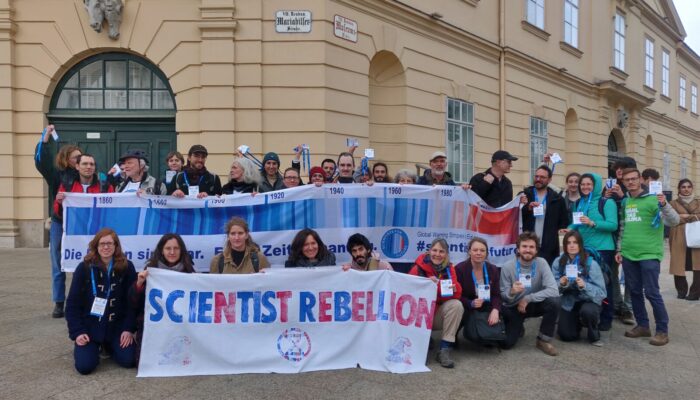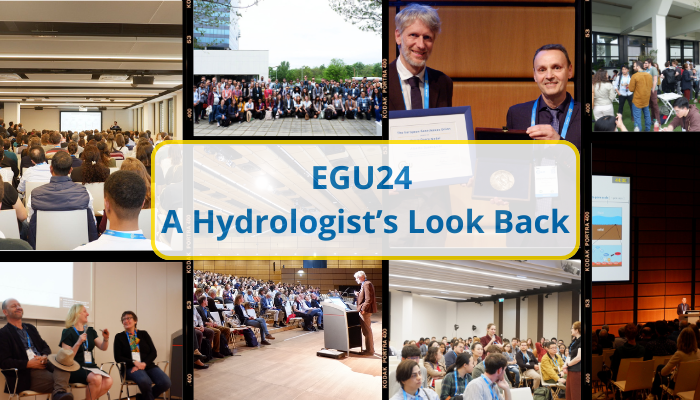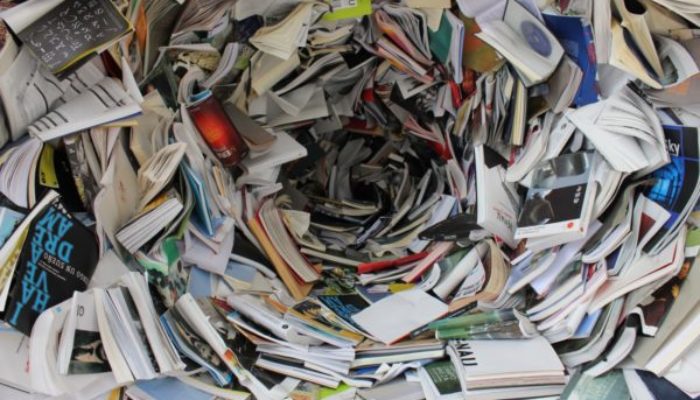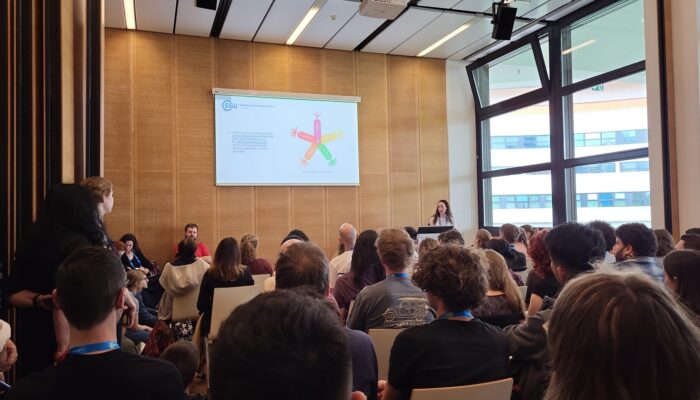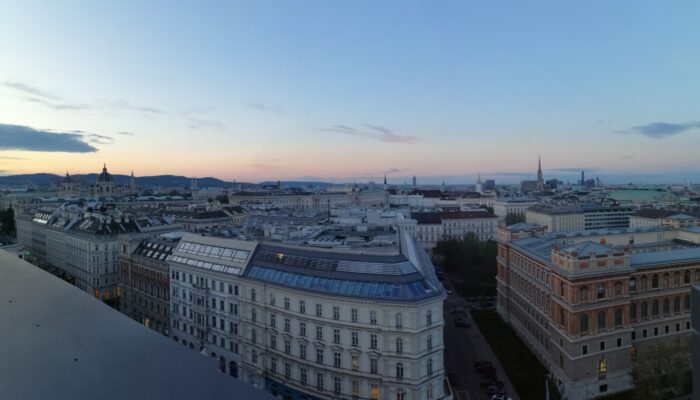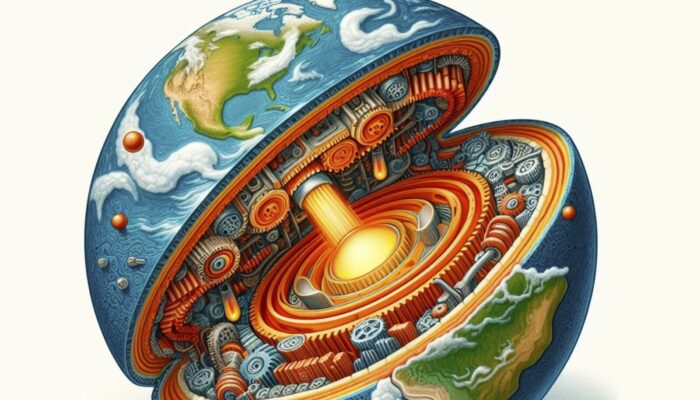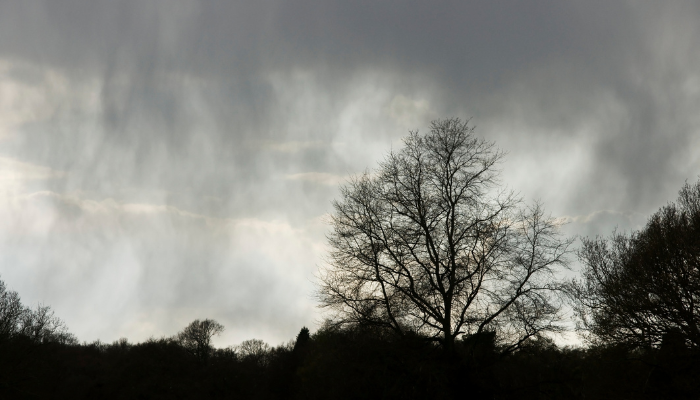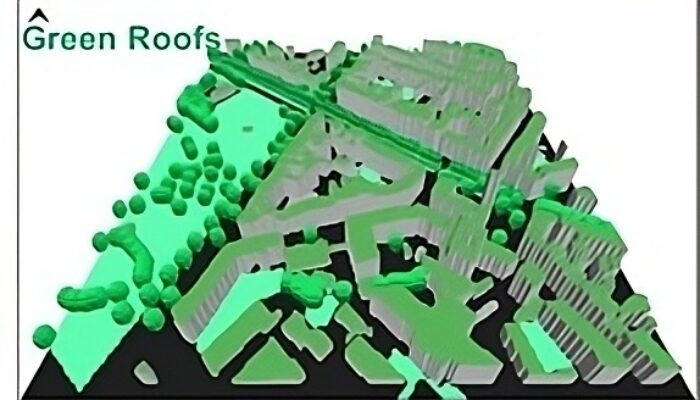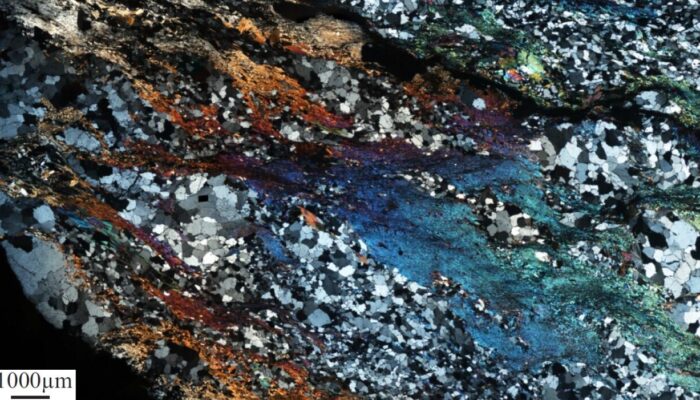In this blog post I am expanding on the blog post about the third EGU Climate Great Debate and its survey results on what you thought we can do as scientists. After conducting an interview with Maien Sachisthal, an active member of Scientist Rebellion, I reflected on the Great Debate and scientists within society, sharing insights on the Scientist Rebellion and Scientists 4 Future protest events t ...[Read More]
If you didn't find what you was looking for try searching again.
Hydrological Sciences
EGU24 – A Hydrologist’s Look Back
With almost 21,000 participants, the 2024 EGU General Assembly, held from 14-19 April, in Vienna and online, was the biggest one yet. For hydrologists, there were hundreds of sessions to enjoy, networking events to join, short courses to learn from, and colleagues to meet. Here’s a look back at the highlights! A look back at EGU24. Thanks to the video editing service Tasty Edits for the fantastic ...[Read More]
Tectonics and Structural Geology
TS Must-Read – Wang et al. (2012) Deformation cycles of subduction earthquakes in a viscoelastic Earth
Large subduction earthquakes cause perturbation of the subduction system, whose response depends on its rheological characteristics. The evolution of the subduction system from earthquake to earthquake is defined as subduction earthquake cycle (SEC), and is characterised by three main processes that operate over decades/centuries: postseismic afterslip, viscoelastic mantle relaxation, and fault re ...[Read More]
GeoLog
GeoPolicy: 10 things that you can do to start engaging with policymaking today
This months GeoPolicy blog post outlines 10 things that you can do to start engaging with policy today! This list was originally created with the help of the EGU’s Science for Policy Working Group and other Science-Policy experts who attending EGU24. While the below list isn’t extensive, it does provide a good overview of the range of possibilities that are at your fingertips to build ...[Read More]
Geodesy
EGU General Assembly 2024 — A Brief Recap of our Activities
Thank you all for the great EGU General Assembly (GA) this year! In case you missed EGU24 or some of the events we organised, here is a little recap. So you can stop wondering how it went and get an idea of what to look out for next year. In the Geodesy Divison, we had our kick-off, unlike the standard, with the online division meeting on Wednesday before the EGU24. There, we introduced our new me ...[Read More]
Hydrological Sciences
Do-It-Yourself (DIY) in Geoscience Miniseries – Part 3: Getting it all together – Cables, Breadboards and Circuit Boards
You got all your components for your project, so now it’s all about getting it all together. Then it’s great to be able to quickly exchange components and change wiring. That’s where a so-called “breadboard” comes in handy. It’s an easy to use device where you can connect microelectronic components without the need to solder anything. Breadboards are like pinboards for cables and microelect ...[Read More]
Geodynamics
Linking the Earth’s Engine and Landscape Formation and Evolution
The Earth’s internal engine drives several geodynamic processes such as continental rifting and dynamic topography, shaping mesmerizing landscapes. Through numerical modeling, insights into formations like the Continental Rift of Southeastern Brazil deepen our appreciation of Earth’s dynamic nature and the forces sculpting its surface. The heat engine beneath our feet Not so long ago, ...[Read More]
Hydrological Sciences
Using rainy day temperatures to predict the future of 100-year downpours
It’s hard to overstate the importance of so-called “rainfall frequency analysis,” or the estimation of rare rainfall probabilities such as the 100-year storm. Billions of euros worth of infrastructure and planning decisions are made every year around the world based on such statistics. Unfortunately, extreme short-duration rainfall—meaning very high rainfall rates over a few minutes to a few hour ...[Read More]
Climate: Past, Present & Future
Modelling the heat mitigation effects of blue roofs and green roofs to assess climate change adaptation potentials in dense urban environments
Urban areas often show higher temperatures than their surrounding rural areas, especially during heat events. This phenomenon is called the Urban Heat Island (UHI) effect. The magnitude of the UHI effect is expressed by the absolute temperature difference between the rural and the urban area and can reach more than 10 °C. During past decades, the magnitude of the UHI effect has intensified in many ...[Read More]
Geodynamics
Exploring rheology of Earth’s materials: The marvels of high-temperature high-pressure deformation experiments
The Earth, with its towering mountains, shifting tectonic plates, and dynamic geological processes, has always been a subject of fascination and inquiry for scientists. Amidst the vast array of scientific disciplines, one relatively small yet impactful field, known as experimental rock deformation, plays a crucial role in unraveling the mysteries hidden beneath the Earth’s surface. Though th ...[Read More]

